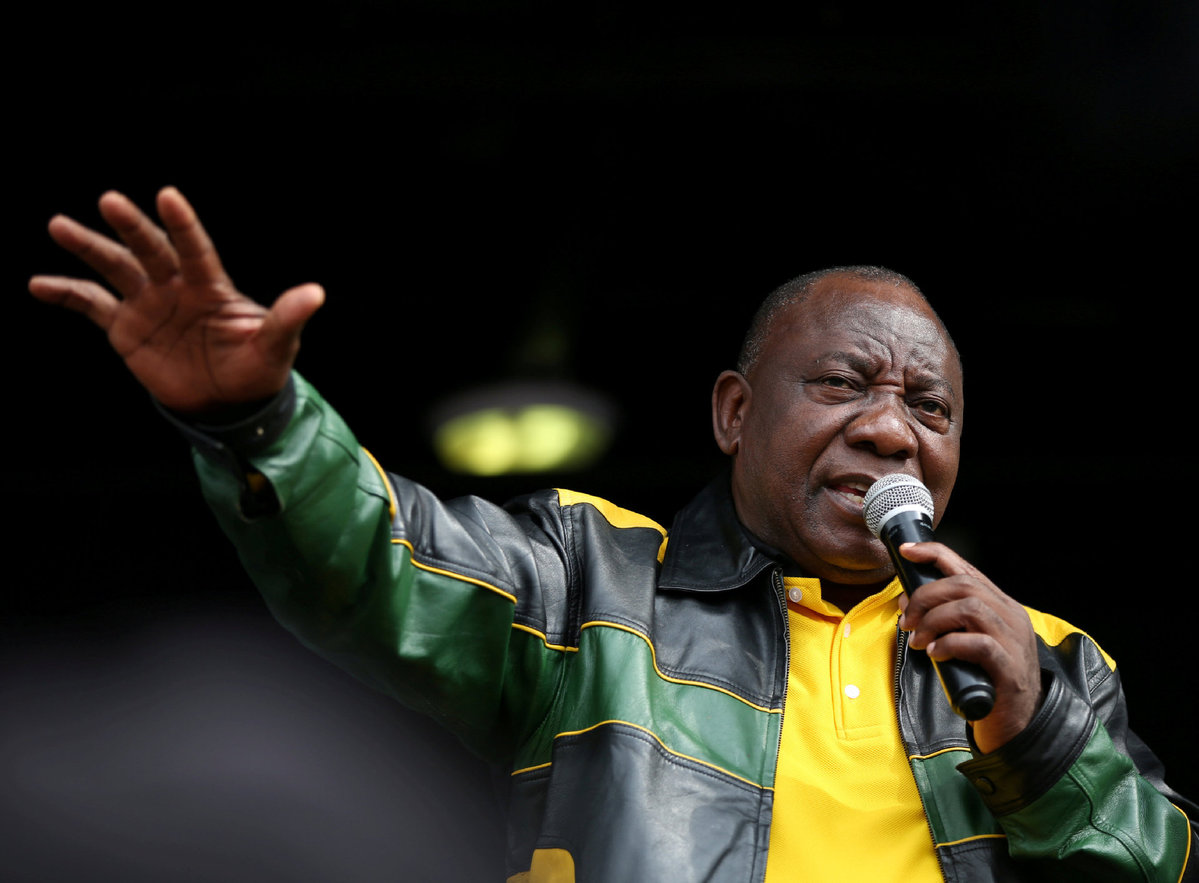South Africans go to national polls
By Lucie Morangi | China Daily | Updated: 2019-05-08 09:44

Analyst predicts the ANC may regain some seats in urban areas it lost in 2016
South Africans will go to the polls on Wednesday, when President Cyril Ramaphosa will be battling it out with Julius Malema and Mmusi Maimane from the two main opposition parties, the Economic Freedom Fighters, or EFF, and Democratic Alliance, or DC.
The elections, the sixth since the end of apartheid in 1994, will elect a new National Assembly and provincial legislatures. It will also determine the next president of the second largest economy in Africa.
Success on ongoing reforms have buoyed the chances of the African National Congress party, or ANC, which Ramaphosa represents, maintaining its long-held dominance, according to experts.
Bob Wekesa, a scholar at Witwatersrand University in Johannesburg, said the 2017 change of party leadership has given Ramaphosa an upper hand.
Wekesa has predicted that the ruling ANC will regain some of the seats in urban areas it lost in local elections held in 2016.
"Since Ramaphosa took over the presidency last year, there has been a semblance of restructuring in the party level while pushing forward economic recovery," he said.
"This has gone down well with the electorates. I think he has successfully managed to reverse the slide in support for the ANC."
The government has recently moved to clamp down hard on corruption, changing the team at the prosecutor's office besides launching a state capture commission to investigate public institution's role in major corruption scandals.
"There has also been increased efforts toward job creation and retention, with a summit held last year to strategize on how to lower the high youth unemployment rate in the country," said Wekesa.
The unemployment rate stood at 27.2 percent in the second quarter of 2018, according to Statistics South Africa, the national statistical service of South Africa.
This has galvanized Ramaphosa's image as a business-focused leader. His style has differed from his predecessor as he has designed his agenda around the nation's economic prosperity, Wekesa said.
Nevertheless, he admits that the new administration has faced stiff headwinds, including delays in poverty eradication, tackling growing inequality and land issues, which has given the opposition ammunition during the campaign period.
David Monyae, an international relations and foreign policy scholar at the University of Johannesburg, dismissed opinion polls that forecast a declining ANC's popularity to below 60 percent and said the ruling party would retain dominance in the forthcoming elections. However, he pointed to a worrying trend on voting patterns where majority of supporters will be drawn from the older generation, 40 years and above.
There is a festering anger against the ruling party among the younger generation, he said. "The ANC has been slow to deliver on its post-apartheid era promises of creating jobs, jump-starting the economy, which is still sluggish at 2 percent."
He said this population is gravitating toward the third largest party, led by Malema, who was once an ANC youth leader.
He has built his party from the youth's disenfranchised feelings and have over the years, relentlessly pointed out the ruling party's failings. He has presented himself as the voice of the young and unemployed, Monyae said.
Malema has also campaigned of improving the current social grant by doubling the money given to the elderly and children.
"It is widely expected that support for EFF will more than double from 6 percent, it gained in the last national elections in 2014, to about 15 percent. The party may go neck-to-neck with DC or even upstage the latter and be the second largest opposition party," said Monyae.
"I think this is reflecting the changing dynamics of Africa's democracy and these are very interesting times for the continent," he added.
























